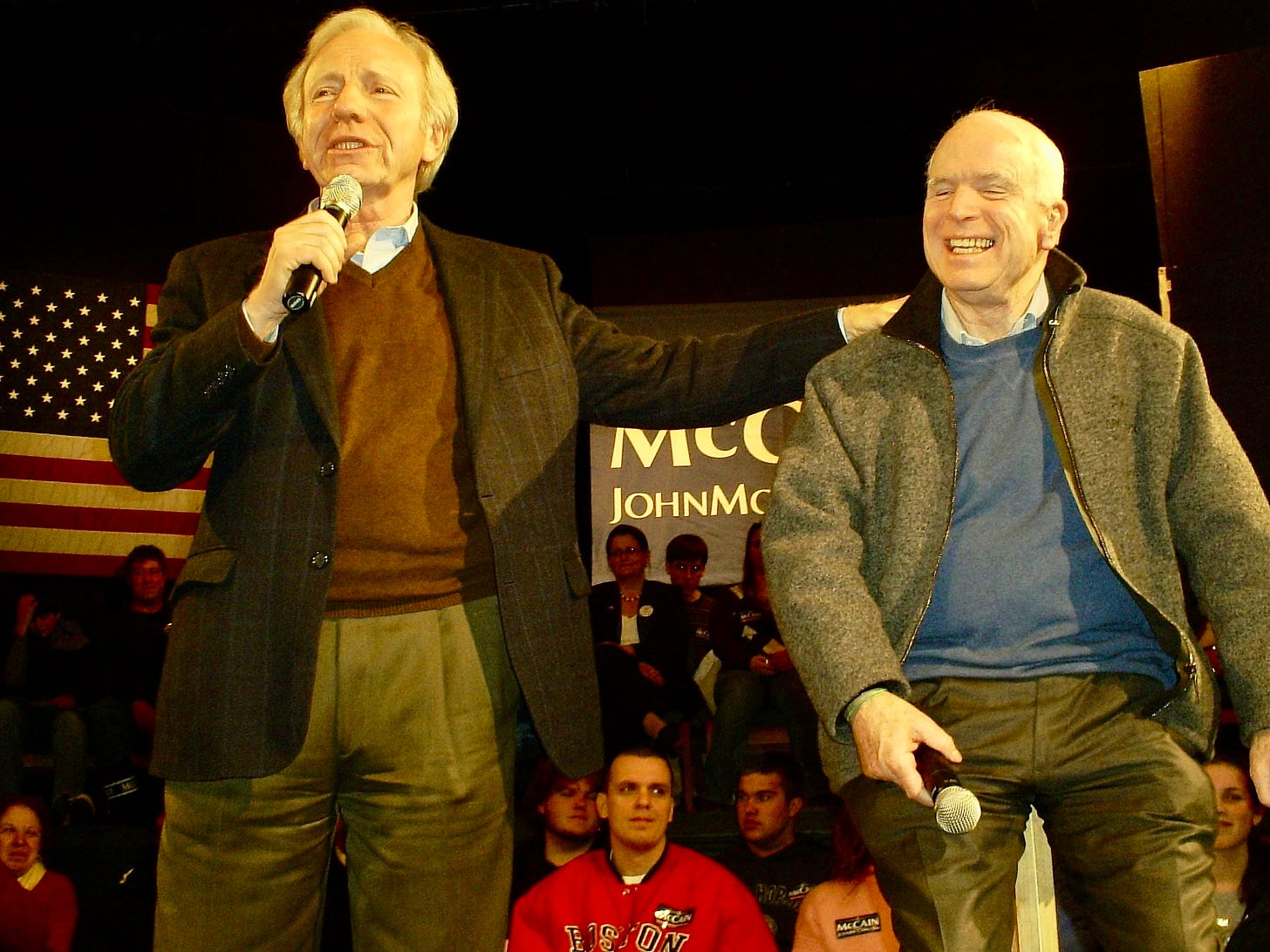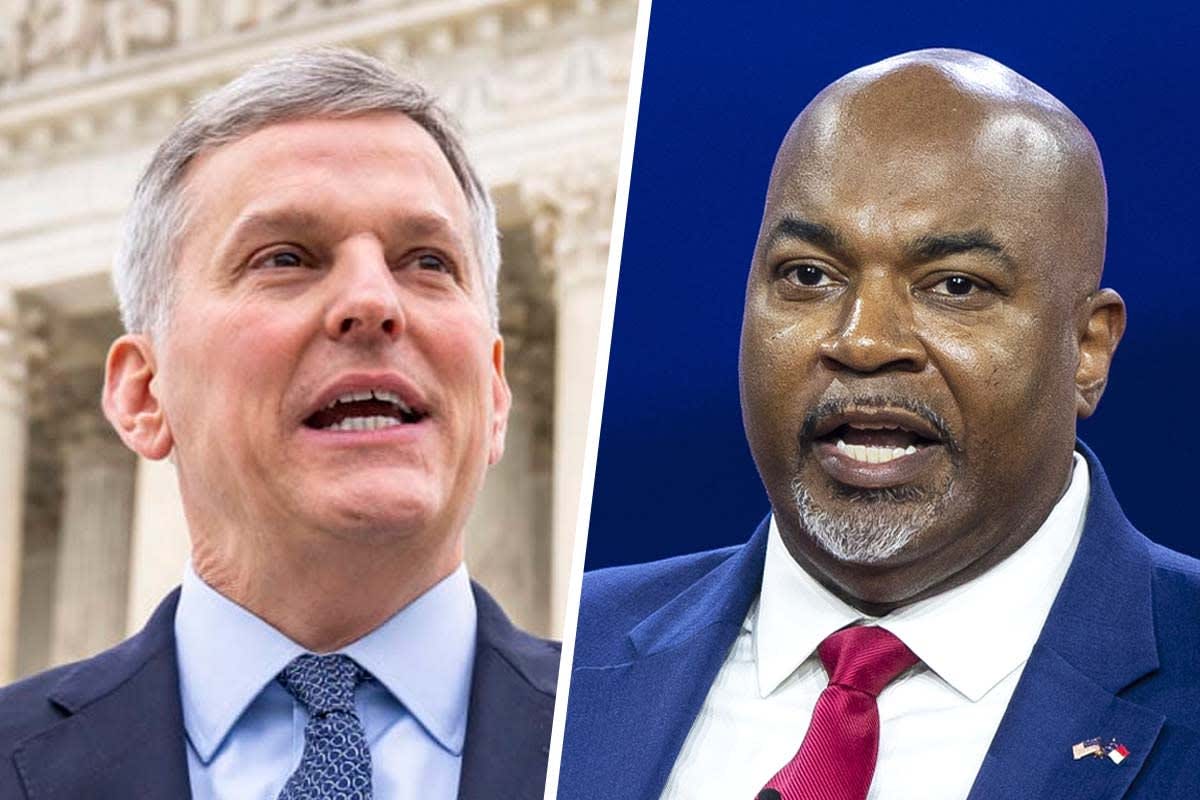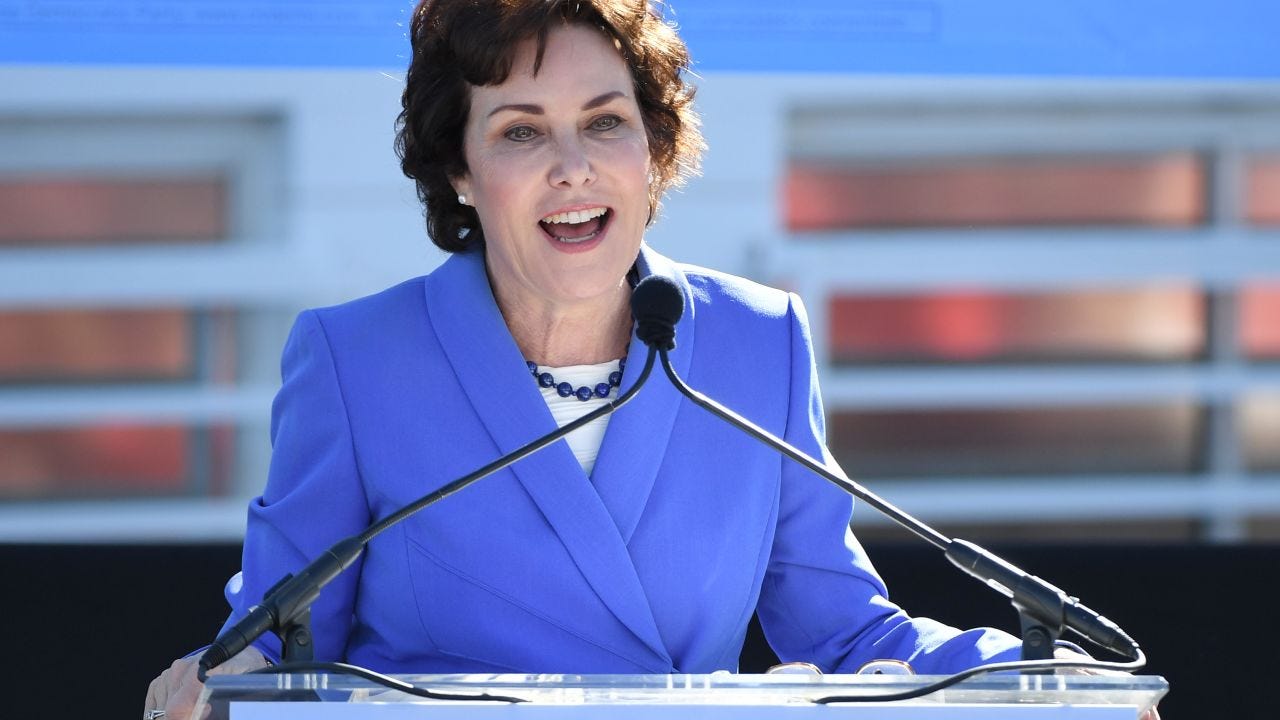The First Jewish President of the United States
"From local to state to federal offices, Jewish Americans have been serving our country at every level of government for centuries. History tells us this will soon include the White House."

It’s going to happen. Everything happens, sooner or later. Even a Jewish president of the United States. In fact, we may see at least two credible shots at it before we’re even out of the decade. And they’re both named Josh.
The first possibility is the immensely popular Democratic Governor of Pennsylvania, Josh Shapiro. For a minute it looked like Shapiro’s route to the Oval Office might run through the vice presidency; he was one Vice President Harris’ three finalists to join him on the ticket. Harris ultimately chose Governor Tim Walz. Shapiro was relegated to introducing the two nominees at a Philadelphia rally. As expected, he gave a barn-burner of a speech. The guy’s got the gift.
It’s worth mentioning that Shapiro may have been less than crestfallen at not being chosen. Reports have suggested that the Governor was a bit demanding in his weekend interview with Harris, specifying parts of what he would expect to be his role. And on Sunday, according to ABC News, Shapiro called Harris to say that “he had reservations about leaving his job as governor.”
The phrase “reservations about leaving his job as governor” can be easily interpreted as “it might be a far better path for me to run in four or eight years for president as the guy who did a great job in the most critical swing state in the nation, as opposed to being tethered to an administration that I’m not actually running but will be associated with nonetheless.” This is politics, after all.
Either way, Shapiro is free to make a substantive run whenever he chooses, most likely when there's an empty seat at 1600 after Trump or Harris leaves office.

Shapiro is the more obvious possibility: he’s a great speaker, perceived as a moderate, and is beloved in Pennsylvania. If he keeps his favorability numbers in a good place, he could be formidable. What about the Jewish thing? We’ll come back to that…
The second, far less visible possibility is a man who is currently the Attorney General of North Carolina: Josh Stein. You are likely to hear more about him as we get nearer to this election, because he is running in a governor’s race that has the makings of an epic story.
Josh Stein is a 57-year-old, Harvard-educated lawyer who became the first Jewish person to win a statewide election in North Carolina when he defeated State Senator Buck Newton in 2016. He was reelected handily 2020. Stein’s time as A.G. has been marked by efforts to fight polluters, reduce access to illegal drugs, and increase public education. He is largely campaigning on the promise to continue the agenda of outgoing Democratic Governor Roy Cooper.
Stein is running against Mark Robinson, the state’s sitting Lieutenant Governor. Robinson is African-American and former factory worker. His political career was launched when he gave a speech at a Greensboro city council meeting that went viral where he criticized the “demonizing” of police officers. Since taking office, Robinson has made a variety of insulting and controversial remarks that have gained much attention and criticism. Donald Trump has endorsed Robinson, calling him “Martin Luther King on steroids.”
Polling in recent months has Stein leading by an average of 3 percent. It is shaping up to be a titanic battle down the stretch.

North Carolina has generally been a state that goes red in presidential races. It began to be perceived as more of a swing state when Barack Obama carried it in 2008. Obama lost it in 2012 and so did Hillary Clinton in 2016. President Biden lost it in 2020 to Trump — but by just 1.3 percent. A sitting governor in North Carolina, if viewed favorably by voters, would turn the Tar Heel State back into a true presidential battleground. The combination of that and a solid record as governor would make Stein a more than credible candidate in a Democratic Presidential Primary.
So we’ve got two Joshes in the queue — maybe even three if you throw in Governor Josh Green from Hawaii. And Illinois Governor J.B. Pritzker is likely to run too. But there’s still that question we hear — or ask — again and again: ‘Is America ready to elect a Jewish president?’
It’s not a stupid question. Rather, it’s one worth addressing — and the Harris team likely took it into account over the last two weeks. The purpose of any political party or candidate, first and foremost, is to win. Without power, you cannot do any of the good things that you ran your campaign on. It’s zero-sum. And I wouldn’t be a bit surprised if this question didn’t also factor into Shapiro’s own calculus. After all, if you’re going to be the one to test the theory and make history, it’s not irrational to choose the election where you’re really going to prove the point. Skip the whole Veep thing.
Plus which, Shapiro, like millions of other Jewish Americans, including me, do not want to do anything that might contribute to a Donald Trump victory. We love Israel and we love America, something Trump finds hard to understand.
Right now, the Middle East is an even more fraught conflict than it is during “normal times.” And consequently, the political nuances and relationship between Israel and the United States may have implications on 2024 that no one can accurately predict.
But in politics, as in life, nothing remains static. The playing field is likely to be different four years from now — if not far sooner.
It is true that in 232 years, no Jewish American has been nominated for president, much less elected to the White House. But that was true for Catholics, until Kennedy. It was true for Black Americans until Obama. There was never a woman nominated for vice president until Ferraro. There was never a woman nominated for president until Hillary Clinton. And just eight years later, we have another.
The first Jewish American to serve in the U.S. Senate was Floridian David Levy Yulee, in 1846. We’ve had more than 40 since, most recently Jon Ossoff from Georgia — where Jews represent just 1.2 percent of the electorate that put him there.
Josh Stein would be North Carolina’s first Jewish governor, but far from the first in the United States. There have been 30.
Today, Jewish Americans constitute 2 percent of our population, yet represent 7 percent of the Congress.
Twenty-four years ago, Democratic Senator Joe Lieberman became the first Jewish American to be nominated for vice president. Did that enhance or detract from the Gore-Lieberman ticket? It would be hard to make the case that it hurt, as Gore won the national vote by more than half a million votes. He lost Florida by 537 votes, which delivered the Electoral College and presidency to George W. Bush.
It is true that we are currently experiencing a record level of antisemitism in our country — but that’s the furthest thing from saying that the majority of Americans are antisemitic. We know differently in a dozen ways — including by looking at who we elect. And that’s a great thing.
From local to state to federal offices, Jewish Americans have been serving our country at every level of government for centuries. And that will soon include the presidency. History tells us that it is coming.
MICHAEL GOLDEN is the Editor-in-Chief of JEWDICIOUS.
From unpacking history and politics to navigating the nuances of family and personal relationships to finding the human angle on sports and entertainment — plus our unsparing take on what’s happening in the Jewish world — the canvas at JEWDICIOUS is limitless! JOIN US!!





